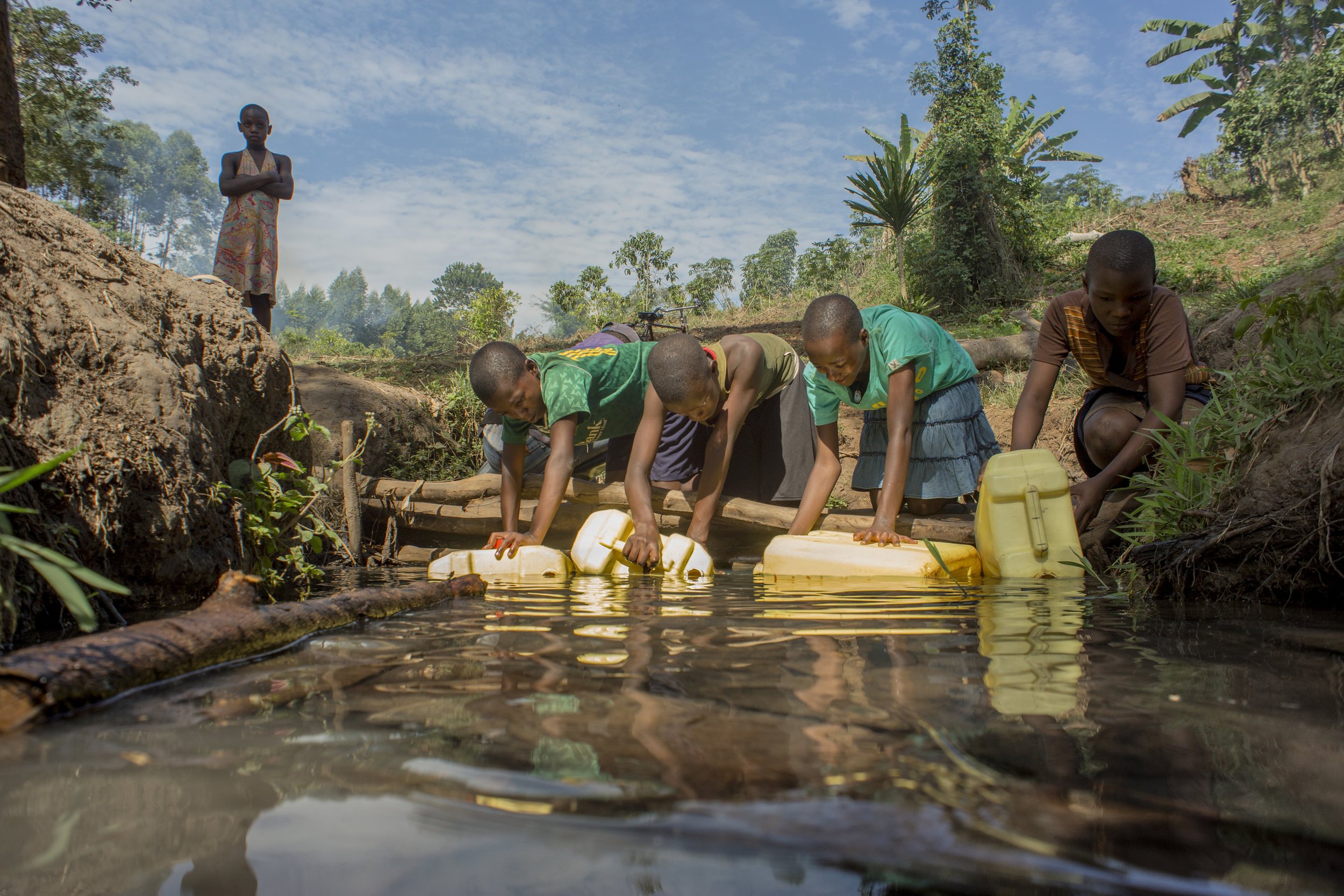World Water Day
Today, we are recognizing World Water Day!
In the fall of 2018, the RTRA Sustainability Team completed a household survey, which was distributed to all families engaged with RTRA. We were able to compile data from 709 households, bringing together information about income, education, skills, food security, health, access to water, child protection, shelter, and psycho-social status. When looking specifically at water, our data showed that 443 of the 709 households would need to travel beyond 30 minutes from their homes to access safe water. In other words, 62% of RTRA households do not have access to basic drinking water services.
This is the story of Namujjuzi Maria, a Primary 7 student at RTRA: “I stay in Bwasandeku, and our major water source is a well. The well is 20 minutes (40 minutes roundtrip) away from my home. The return journey from the water source is steep. The water is dirty and it is our only water source. The other water source is a spring, which is an hour away. We had a borehole nearby that broke down a few months back. It’s risky walking long distances to the water sources.” Namujjuzi Maria’s main contribution to the home is fetching water, which means she spends a great deal of her week making this commute before and after school.
In 2015, the United Nations put forth 17 Sustainable Development Goals to be reached by 2030. Goal 6 is to “Ensure availability and sustainable management of water and sanitation for all”. The RTRA Health Initiative is seeking to drive this goal in its engagement with the Bwasandeku community.
The United Nations International Children’s Emergency Fund (UNICEF) analyzes a country’s access to water through 5 categories:
safely managed drinking water service (water from an improved source that is located on premises, available when needed and free from contamination)
basic drinking water service (an improved water source within 30 minutes’ roundtrip)
limited water drinking service (an improved water source that takes over 30 minutes roundtrip to access)
unimproved water sources
surface water
Using these categories, UNICEF assessed the coverage of basic drinking water by country, determining that 181 countries achieved at least basic services to over 75% of their populations. However, Uganda has only been able to supply 39% of its population with basic drinking water service. This means that over half of the Ugandan population has to travel more than 30 minutes to access drinking water, with many still relying on unimproved water sources (drinking water from an unprotected well or spring) and/or surface water (directly from a river, dam, lake, pond, stream). According to the data, there are only 11 countries that sit within the same category as Uganda, with Eritrea and Papua New Guinea being the only countries that rank lower than Uganda.
According to the 2014 Ugandan Census, the sub-region of West Kalungu in which Bwasandeku is located has between 41.7-47.9% of households living without access to safe water. While some families have access to boreholes or water taps, the majority collect water from unprotected springs or rely on surface water. Oftentimes, caregivers and children are required to walk great distances to access these sources, which are not even safe for ingestion. Unsafe water often leads to poor sanitation and hygiene as well as water borne diseases, which include Malaria, Cholera, Typhoid, and Diarrhea. The United Nations estimates that Diarrhea alone kills up to 33 Ugandan children every day. It is, therefore, necessary that we prioritize clean water for our students.
At Raise the Roof Academy, we see the need to prioritize clean drinking water, sanitary latrine conditions, and an educational water, sanitation, & hygiene (WASH) program for all of our students. In addition, it is our hope provide the Bwasandeku community with access to clean water. We believe that water is life! Over the next couple of years, we will be working to implement a water harvesting system at the school, which will be open to students and the surrounding community. We invite you to join us today, on World Water Day 2019, in raising support for the children and caregivers of Bwasandeku through the RTRA Water Project.



